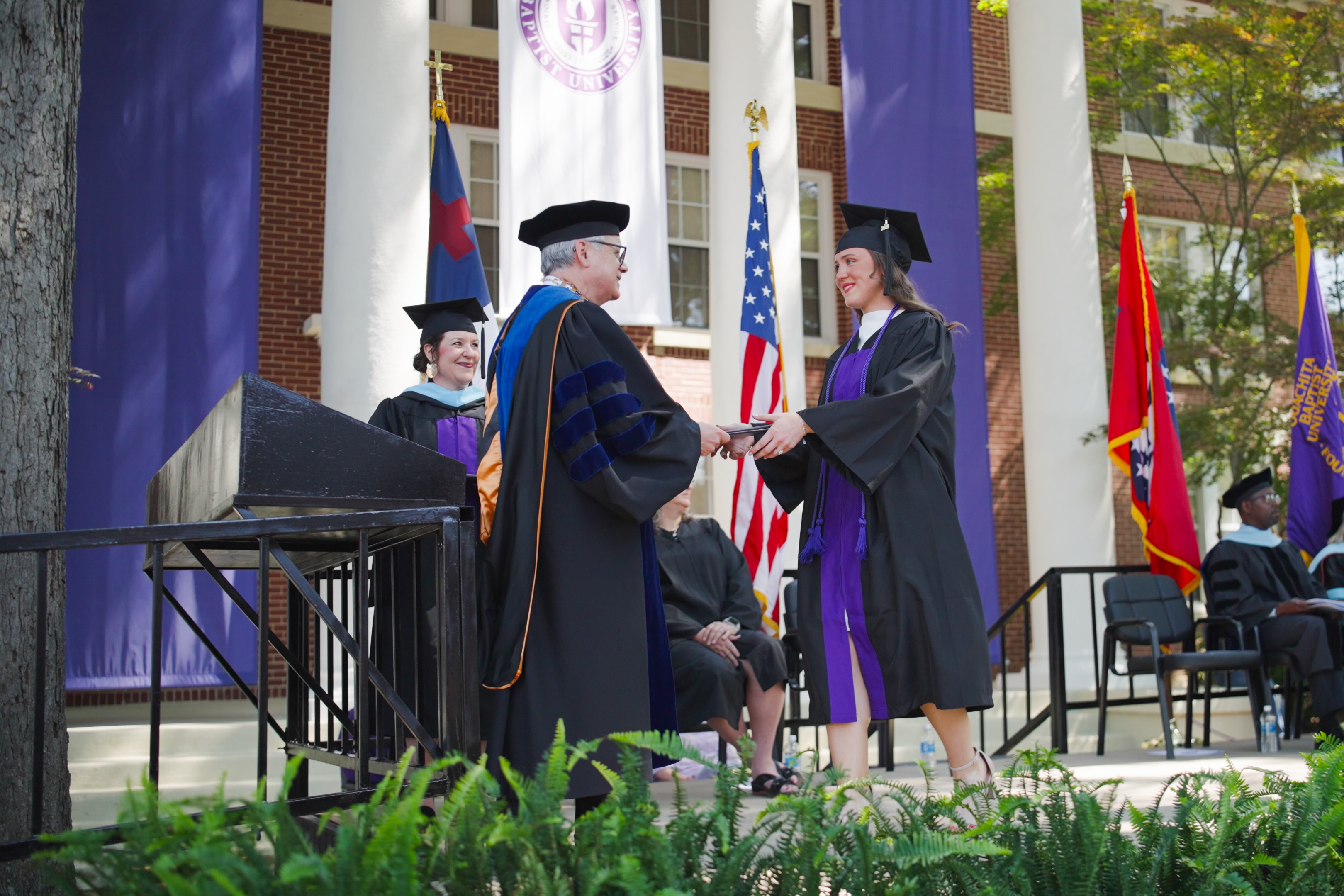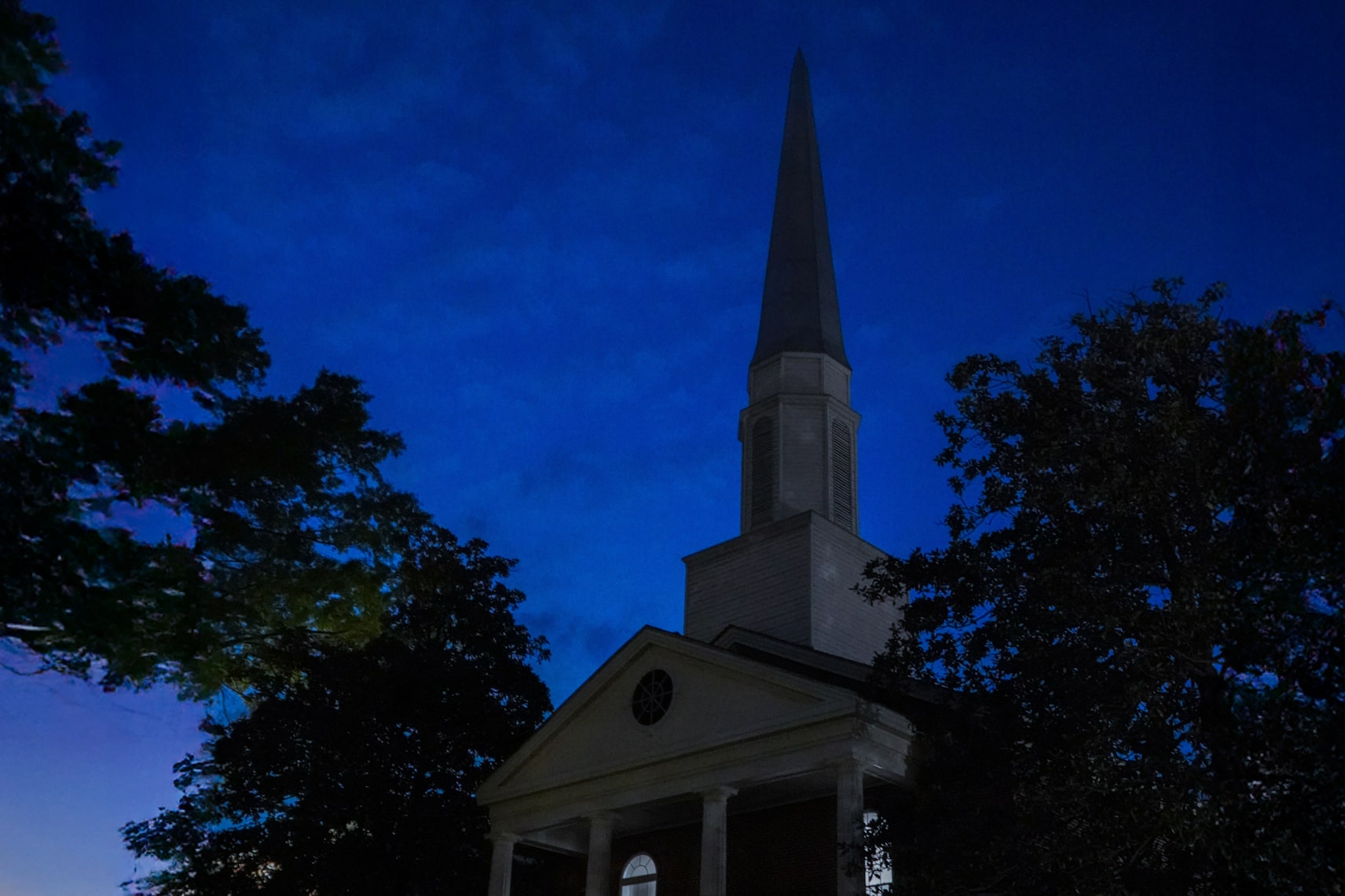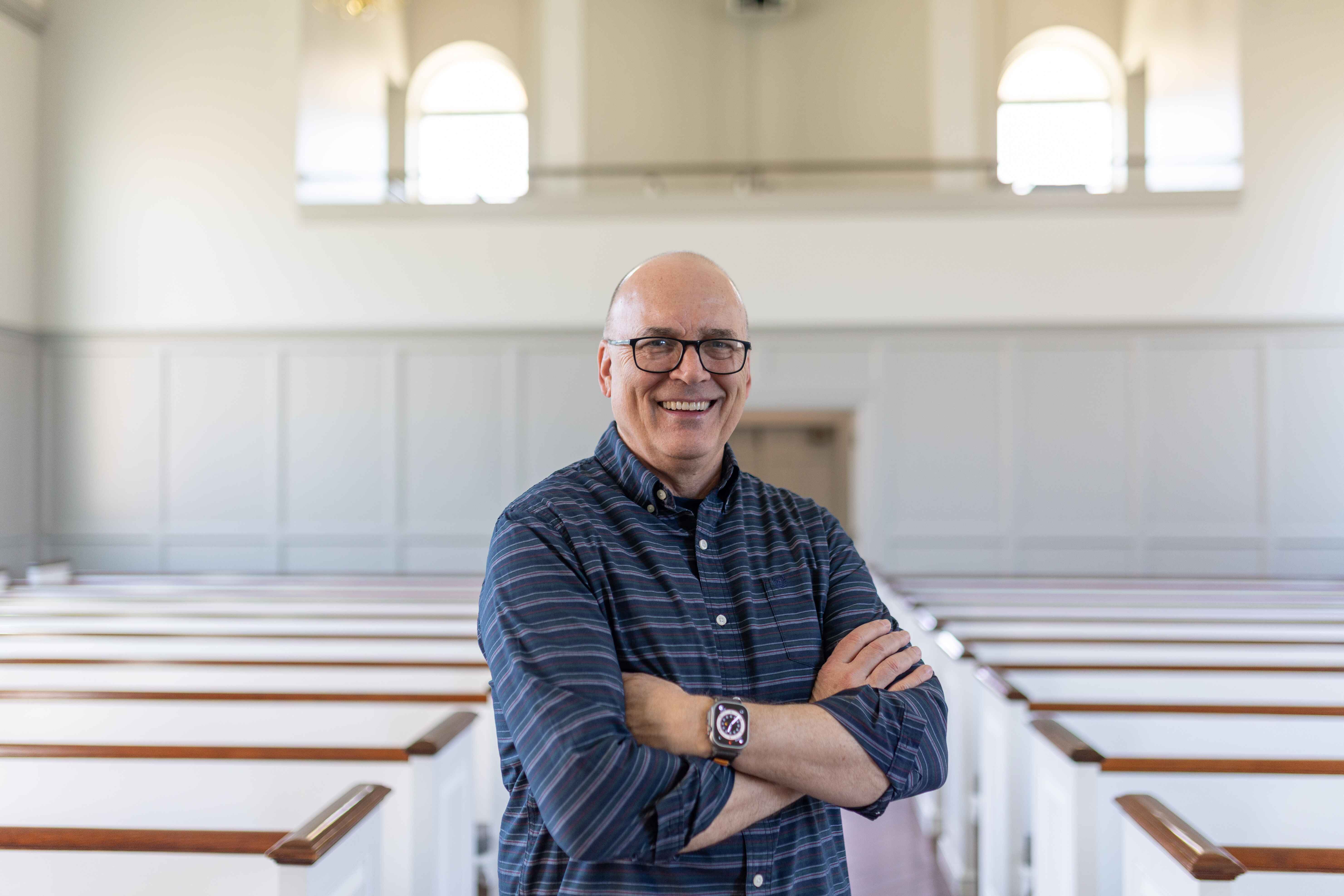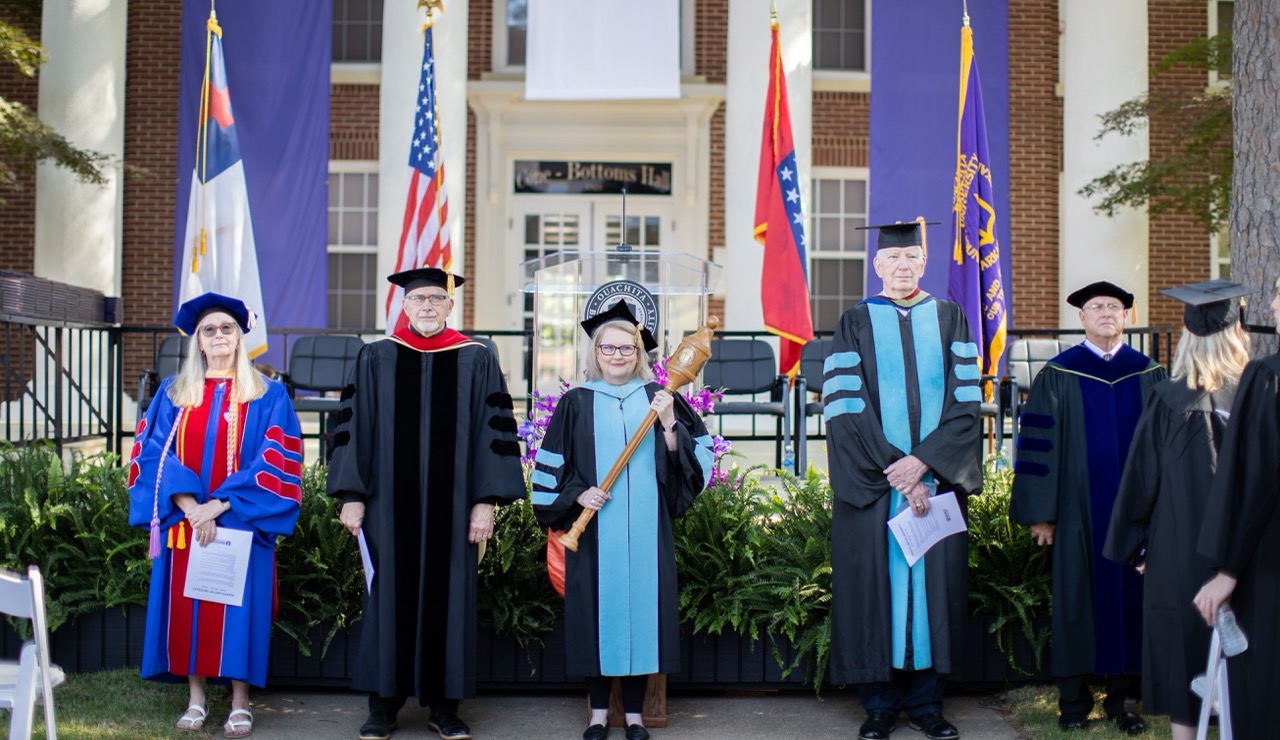Dr. David Bebbington discusses evangelical history, trajectory in Birkett Williams lecture at Ouachita
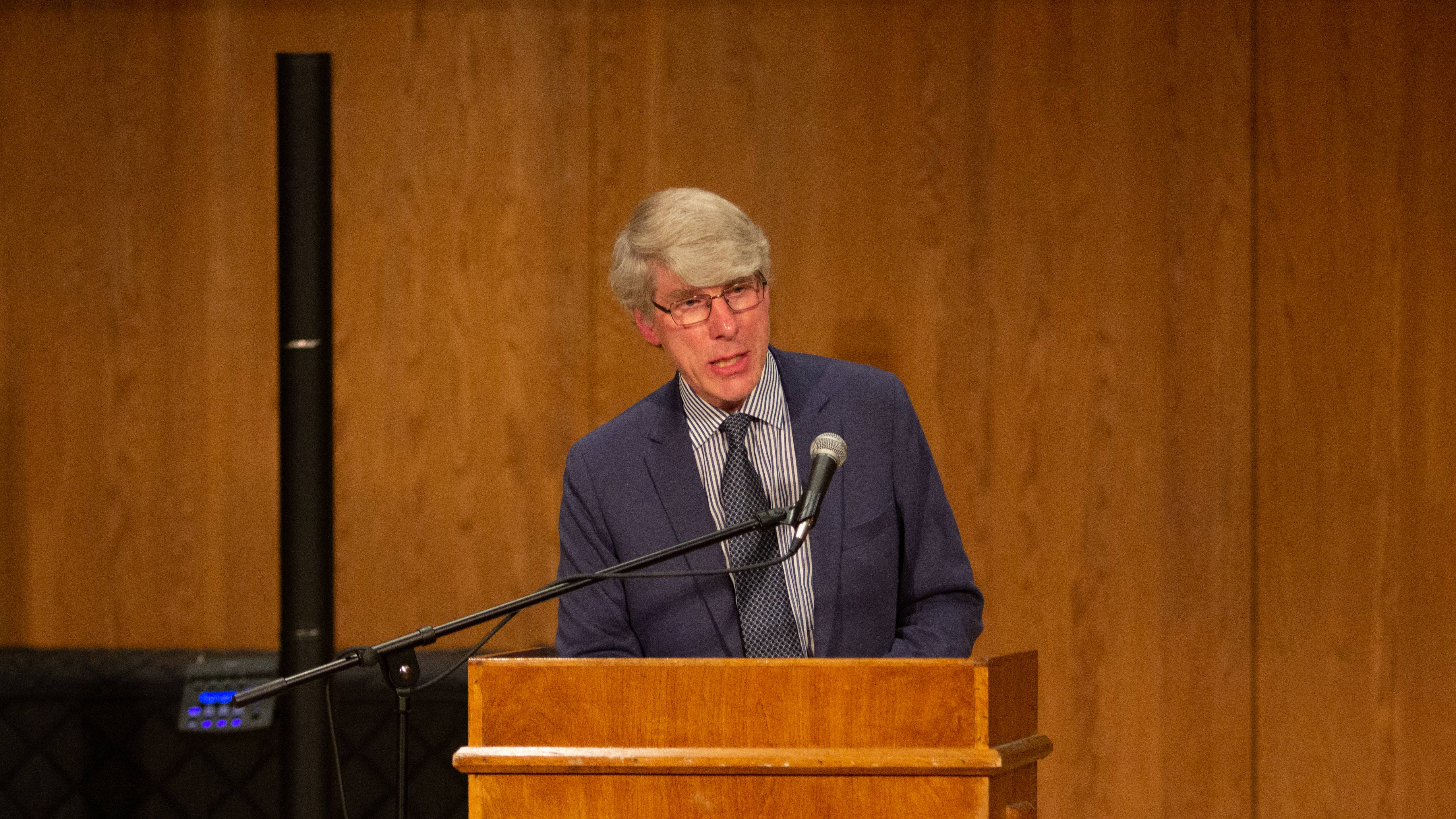 October 22, 2019
- Rachel Gaddis
October 22, 2019
- Rachel GaddisPhoto by Danielle Sourber
Dr. David W. Bebbington spoke at Ouachita Baptist University on Oct. 7 as part of
the university’s Birkett Williams Lecture Series. A world-renowned scholar on evangelicalism,
Bebbington focused his lecture on the history of evangelicalism and its relevancy
to the modern Christian.
Dr. Bebbington began by talking about evangelical revivals, America’s First Great
Awakening and England’s Evangelical Revival, which took place in the 18th century, and mentioning the impact of leaders like John Wesley and George Whitfield.
“These people led major movements that transformed the Christian sea on both sides
of the Atlantic, for it was a protestant, trans-Atlantic phenomenon in America, as
well as in Britain, leaving an incredible mark on both countries over the long term,”
he said.
Bebbington, who has authored more than 20 books pertaining to the topic of evangelicalism,
proceeded to characterize evangelicals, retrace their history and assess their current
trajectory based on his research “Evangelicals: Who They Have Been, Are Now, and Could
Be,” which he conducted alongside scholars Mark A. Noll and George M. Marsden, who
also are known for their work in evangelical history. The book is set to be released
in November.
In order to define evangelicalism, Bebbington identified four enduring characteristics
of the evangelical faith: the Bible, the cross, the concept of “being born again”
and activism.
Citing recent developments in U.S. politics and evangelicals who face criticism for
association with the name, Bebbington reminded the audience of the broader picture
of evangelical faith.
“Evangelicals should consider the record of the evangelical movement over time,” Bebbington
said. “Especially, they should think how habitually evangelicalism has been the seabed
of reform.”
Among other examples, Bebbington referenced how evangelicals led the campaign against
the slave trade in Great Britain under William Wilberforce from the 1780s until its
abolition in 1807, as well as the abolition of slavery in the United States during
the Civil War in 1863.
Bebbington also proposed that American evangelicals should consider the positions
and activities of other contemporary evangelicals around the globe as “there are evangelical
Christians in many denominations in virtually every land.”
For example, British evangelicals are more likely to lean towards reform than against
it, he said.
“British evangelicals are likely to be swing-voters,” he said. “They change their
vote, that is to say, due to the circumstance of the times, and they are not enmeshed
with a single political party. And that shows that evangelicalism is not necessarily
a dimension of a political front, and need not be so.
“It must be insisted that the evangelical movement is religious and not political,”
Bebbington continued. “The evangelical movement has often generated reform, time and
time again, and evangelicals should not drop the word because circumstances at one
political juncture seem to point in that direction. … If you believe the Bible, if
you cherish the cross, if you want to promote conversions and if you want to pursue
activism, then recognize the identity that you actually have as being an evangelical
Christian. Value, then, the evangelical tradition from the premiere of the 18th century. We can rejoice in the commitment of our tradition to changing lives for
good in the name of Jesus Christ.”
After teaching since 1976 at the University of Stirling in Scotland, Bebbington recently
retired as Emeritus Professor of History. Currently a non-resident senior fellow on
the history of religion for Baylor University’s Institute for Studies of Religion,
Bebbington also has taught for the University of Alabama at Birmingham; Regent College
in Vancouver; University of Notre Dame in Indiana; and University of Pretoria in South
Africa. Bebbington also is a Fellow of the Royal Society of Edinburgh, and he is part
of the Royal Historical Society.
Some of Dr. Bebbington’s notable books on evangelicalism include “Evangelicalism in
Modern Britain: A History from the 1730s to the 1980s,” “The Dominance of Evangelicalism:
The Age of Spurgeon and Moody” and “Baptists Through the Centuries: A History of a
Global People.”
Ouachita’s Birkett Williams Endowed Lecture Series was established in 1977 thanks
to a gift from the late Birkett L. Williams, a 1910 Ouachita graduate. His generous
endowment established the lecture series as an opportunity to extend the concepts
of a liberal arts education beyond the classroom by bringing renowned scholars and
public figures to Ouachita’s campus. Ouachita’s Pruet School of Christian Studies
hosted Bebbington’s lecture. He also delivered Ouachita’s chapel address on Tuesday,
Oct. 8.
For more information, contact Ouachita’s Pruet School of Christian Studies at (870)
245-5599.
You Also Might Like
Recent
Ouachita reports Spring '26 enrollment, led by 50% increase in graduate students
February 11, 2026
